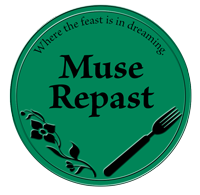Prelimanry Notes on Qoheleth
In preparation for Lent, I have not only started this blog, but I have once again buried my nose in one of my favourite books of the bible: Qoheleth (Ecclesiastes). The idea at the time was that I would lead a bible study at the Episcopal Church where I was working. For various reasons, that has now fallen through. Not the least of which being that the verb in that sentence is now past tense. For better or for worse, I am no longer working at Trinity. I do not wish to dwell much on the complex web of reasons, emotions, and situations that led to that decision here. But let it suffice for me to say that it was not a good fit for more reasons than two, and it has long been time to focus my energies elsewhere. It is actually probably more of a step forward that I am not there anymore than a step backward. There is still a significant amount of healing and learning to do in the wake of this ending. But this is not the place to say more. It is not that kind of blog. If anything, I am grateful for the bonus time I now have to devote myself to sculpting my presence here and coming into my own space.
At any rate, my Lenten class on Qoheleth is no more, but I still have a lot to say about it. I don’t doubt I will ever tire of things to learn from this or any other book. And it is no surprise that I am overplus full of things to say about it. So here are some of my preliminary reflections:
This is a difficult book. Qoheleth is hard enough to translate, and even harder to read and catch its meaning. Among Luther’s opening comments on Qoheleth in his commentary (Luther’s Works Volume 15) he says that “it is almost a bigger job to purify and defend the author from the notions which they [readers and interpreters all] have smuggled into him [Qoheleth] than it is to show its real meaning.” The task of reading it is an almost insurmountable hydra before we even begin. Right down to the interpretive choices of our translation of the text. There is an entire interpretive history, libraries full of Qoheleth commentary (not to mention our own cultural understandings around the words Qoheleth uses) that make it out to be a book about nihilism. Or more plainly: it is a book that despairs of life. Tradition sees it as a postmodern skepticism before its time. Or it is in many and various ways linked with existentialism, or depressed giving up on life, or any other such manner of things. The way the established tradition goes, one might think this book was the fodder of Sartre or Nietzsche (if either of them would ever have thought to read it). For a more popular culture (that is, best as a nerd of my stature can muster an approximation to popular culture) and less Philosophical parallel: Ecclesiastes is seen as matching the voice of Scully in the X-Files. It despairs of hopefulness, and it looks ever doggedly at life, seeing meaninglessness where we would want a more Mulder sense of belief and whimsy.
So deep is the confusion that my Anchor bible commentary (and even Wikipedia) despair of why it would even be included in the biblical canon. It seems so counter to everything else in the tradition, that it makes no sense for it to appear there at all.
I do not want to completely rend this interpretation from the text. I think there is good reason it has so long been read that way. But there is so much more to Qoheleth, and I agree with Luther that this has been more read into and less read out of what Qoheleth has to actually say. Also, I think there is a good reason it IS in the cannon. But that reason means reading this book in a way that the established tradition has not yet thought of. The challenge I would bring to any bible study I lead on Qoheleth, and the challenge I present here, is to read this book again with new eyes. To listen truly to what Qoheleth says through all its poetry and argument.
Luther’s own gloss of the central meaning of Qoheleth is that its point and purpose is “to put us at peace and give us a quiet mind in the everyday affairs and business of this life, so that we live contentedly in the present without care and yearning about the future and are, as Paul says, without care and anxiety” (LW15, 7). This book, Luther says, is actually less about cynicism, and more about comfort! It is a book about healing, wholeness. We hear the words “vanity of vanities!” ringing in our ears, but when we forget where Qoheleth is placing this despair (mainly in our works and our toil, and not in things and life itself) we have trouble hearing the “eat drink and be merry” that Qoheleth also repeats. When we hear Qoheleth’s words about the cycles of the sun and wind, we often miss the wonder and sense of beauty Qoheleth sees in them. (And so on.)
The challenge of this book, is to understand why proclaiming vanity is not despair. It is instead, a very difficult task of deconstructing our “up-religion” selves. Our notions that we can get up to god. Our ideas of our own progress and goodness. Our thoughts of our own inhabiting of God’s ruling seat. It is, in effect, what Lutherans would call a movement from Law to Gospel. From the letter that puts us to death, to the letter that brings us to new life in community with one another.
In my continued close study of this book, I have found Qoheleth is really, I would argue, more a pre-Luther text than a pre-Sartre text. It is more a Mulder than a Scully. The things that it despairs of are time and again actually our attempts at control and our efforts to put ourselves in the power seat. Not things themselves. Even the Anchor bible commentary ends up arguing this way (although it quickly falls back away into a more Scully-like interpretation) It is almost as if our reading of Qoheleth forgets itself in the face of what the book actually says. It is a book that physically drags us through, and does to us, the very thing that Luther would undertake in his Catechism that it would do to us: a pointing out toward others and to God rather than in on ourselves and our own devices. A pointing toward community and peace, rather than anxiety and self-betterment. These are all things I find in Qoheleth and Luther in common. I do not think I have read them in. Instead, by stripping away my “reading in” and honestly trying to listen to the text, I have been continually surprised to find how much Qoheleth is in Luther and Luther in Qoheleth. I did not expect to find them there together at all. In fact, I originally thought Qoheleth was just as the tradition would have it. But every time I read it, I am more convinced how far it is from Scully and Nihilism, and how close it leans towards Mulder and Lutheranism. (Not that I really want to lump Mulder and Luther together in one sentence. But that is an issue that is neither here nor there.)
Among the first things any commentary usually says about the book is how strange it is, and how strange the language is. It is strange Hebrew indeed. And it is strange even in English translation. So the language is hard, and the meaning is even harder to keep hold of. You might say keeping track of Qoheleth’s meaning is like a “chasing after the wind.” (Qoheleth. 1:14) But I think Luther is right: this text truly wants to free us of anxiety, not proclaim how prevalent it is. And the more I read Qoheleth, the more I see how much beauty it proclaims in the world. The more I read it the more I see how much comfort the words can bring.
I will do a more detailed tracing of my reading of the book later. (I have written extensively about this already in a couple of Seminary papers). This is already probably a lot for today, and it serves as a good introduction for a series of entries I hope to do on Qoheleth.


“We hear the words “vanity of vanities!” ringing in our ears, but when we forget where Qoheleth is placing this despair (mainly in our works and our toil, and not in things and life itself) we have trouble hearing the “eat drink and be merry” that Qoheleth also repeats. When we hear Qoheleth’s words about the cycles of the sun and wind, we often miss the wonder and sense of beauty Qoheleth sees in them. (And so on.) The challenge of this book, is to understand why proclaiming vanity is not despair.”
Yes. Yes yes yes yes yes. YES.
Admittedly, it’s been a few years since I’ve read Qoheleth/Ecclesiastes/Koheleth, and as my knowledge of Hebrew ends with “righteous” and “let’s get drunk!” (thanks, Dad), I’ve only read the English translation (NRSV, for the record), but that’s exactly what I remember from reading this book. I remember Qoheleth as being a hopeful text—at least, I read it as hopeful. If it’s existential, it’s in the same way that RENT and Avenue Q are existential: the “no day but today”/”seize the moment, ’cause tomorrow you might be dead” line of Existential thought, the one that argues that it’s our choices and our actions that give life meaning, even if the actions themselves are not in and of themselves inherently meaningful [disclaimer: my knowledge of Existentialism comes almost entirely through the ways in which it’s been interpreted in literature and art, so I could be way off base here].
My reading of Qoheleth is that it’s a book full of wisdom: that all things have their time; that the lives of humans continue to echo the lives of their ancestors in spite of their descendants’ best efforts; that there is beauty even in the vanity—in “the mist between our fingers,” as a good friend once told me.
Keeping you in my thoughts and prayers this Lenten season, Thoughtfoot. May the winds carry you forward.
–Ron
p.s. Hey, I finally had time to catch up on your musings!
I’ve heard and read throughout my Catholic insitucrton that the real point of our existence is to serve God. Beyond my Catholicism, I am finding that it is how we serve that gives us our meaning and reason for living. The Jesuits bring God into our present time by telling us to find God in everything. Thus, God is here right now, and God is within us as well because we are a part of everything. If we remain connected with the God within us, knowing the time for each season becomes second nature. But, there is always that freedom of choice thing to contend with.